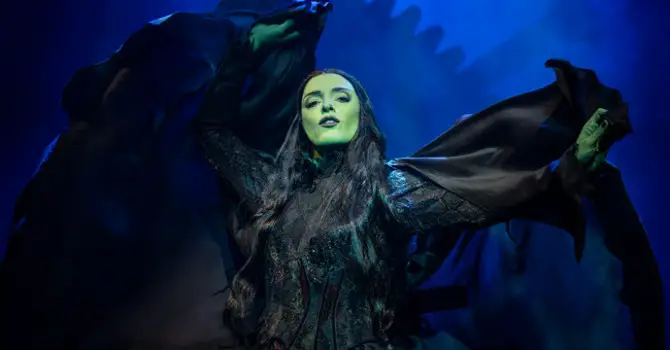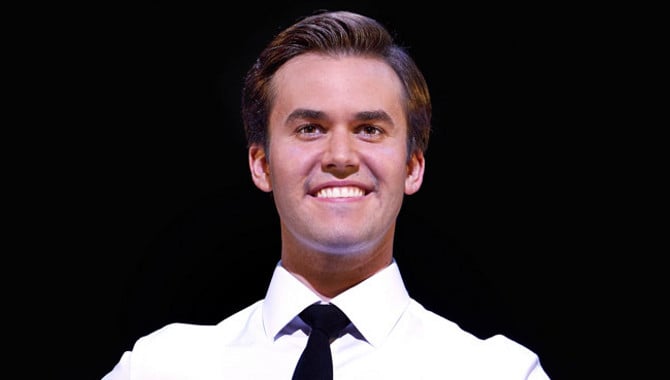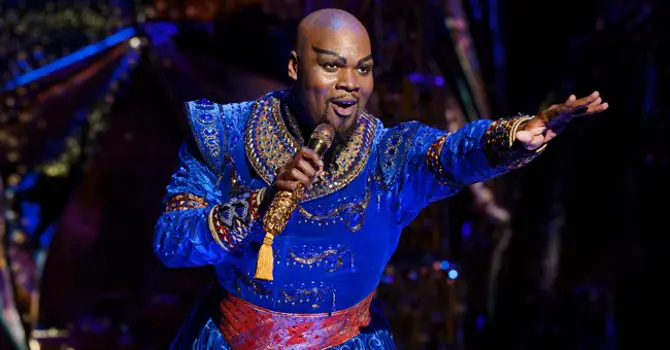With its music by Elton John and book and lyrics by Lee Hall, the Broadway musical Billy Elliot is as much an emotional father-son tale as it is a coming-of-age story about its title character, an 11-year-old drawn to ballet dancing in a northern England mining town in the mid-1980s.
And, while Billy dances with a compelling mixture of beauty, urgency and muscular aggressiveness, his father (played by veteran actor Gregory Jbara) objects, remaining steeped in the male stereotyping in the local macho culture -- only to be won over in the course of the show.
His eventual embrace of his son’s huge talent is a magical transformation. You see a vivid palette of emotions on Jbara’s face, a rubbery instrument that easily conveys regret, anger, sadness and full-blown amazement.
As an actor, Jbara, who appeared on Broadway in Dirty Rotten Scoundrels a few years back, says he does not try hard to show his character’s feelings but admits his own paternal sentiments may be too strong to mask.
“It’s such a gift to surrender to my awe for this child and watch him dance,” says Jbara, who won the 2009 Tony Award for Best Featured Actor in a Musical, one of Billy Elliot’s 10 Tonys. “It’s easy to get to that place. I get to take that ride every night and fall in love with that boy. I’m imbued with such amazing pride. I’m feeling it as an actor.”
Jbara has worked with about 10 actors who alternate performing as Billy including the original three who accepted the Tony in 2009 for Best Actor in a Musical.
“People identify with the show’s characters,” he says, noting that these are working-class people -- originally portrayed in the 2000 dramatic film and later when the smash musical debuted in London in 2005 -- dealing with a devastating economy. “The Anglo-specific things have been tempered and the socially relevant British jokes were eliminated,” he continues, “so it’s the family relationships, the community, and the struggle of the people against the leaders that we as Americans identify with.”
He adds that the scenes between Billy and his dead mother resonate with anyone who has lost an important family member. And, he says, he is struck by what a certain demographic has been telling him.
“I’ve been stopped on the street by more men than any other show I’ve ever done in New York because it’s an unusually strong father-son story,” he says. “ And, of course, happy endings are nice.”
Celebrity Profile: Billy Elliot’s Gregory Jbara
New York City Activities
More Articles
Spring Preview: Broadway Shows 2024
This spring, 22 new plays and musicals will arrive on Broadway. We've got a rundown on what's coming, plus looks at long-running theatre options for 2024. (Full of talent-fueled performances, stellar sets, costumes, and effects, these shows are the jewels in Broadway’s dazzling crown.)
Two Faceted Diamond: Mark Jacoby Lifts Broadway's A Beautiful Noise
Veteran Broadway actor Mark Jacoby skillfully portrays Neil-Now in "A Beautiful Noise, The Neil Diamond Musical." The show masterfully weaves Diamond's past and present, with Jacoby's amazing singing voice at full throttle in the show’s penultimate number, “I Am…I Said,” alongside Neil-Then Will Swenson.
Talking With The Book of Mormon's Kevin Clay
Kevin Clay shines as Elder Price in the long-running Broadway hit, The Book of Mormon. Clay's portrayal is a standout, and his on-stage chemistry with Cody Jamison Strand, who plays Elder Cunningham, is not to be missed.
Michael James Scott Enchants as Genie in Aladdin on Broadway
As played by Michael James Scott, Genie in Broadway's Aladdin is a supernatural adrenaline rush. In 2021, when theatre marquees lit up once again, Scott returned to “one of the most fun roles on Broadway” (and one of the most demanding).
"Easy Money": Free Comedy Every Thursday @ Rodney's Comedy Club (UES) at Rodney's Comedy Club on 5/2/24
World touring comedians Turner Sparks and Shaun Murphy welcome their friends from Netflix, HBO and t
Emerging Leaders Initiative Mixer at 598 Broadway on 4/27/24
Crossing Thresholds, in support of the Emerging Leaders Initiative (ELI), invites you to Spring Into
How to Give Up on Your Dreams at Caveat on 4/28/24
Embark on Meg Chizek's hilariously chaotic quest for perfection, achieving her dreams, and finding l
19th EJ Autism Jigsaw 4M Mile Run/Walk at East Islip Marina Park on 4/28/24
19th EJ Autism Jigsaw 4M Mile Run/Walk Featuring the John McGorry Irish Mile* (1.27) In Loving Mem



-fotor-20230728152812.jpg)

